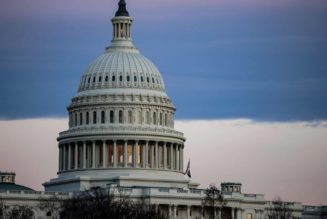Columnists
Dubai firm may not revive Telkom
Friday October 06 2023

A subscriber holds a 4G Telkom SIM card. FILE PHOTO | NMG
Privatise, renationalise then re-privatise. Let me explain. In March 2007, Kenya privatised Telkom Kenya by selling 51 percent stake to Orange for the princely sum of $390 million (about Sh57 billion at current rates).
In 2013, the government chose to sit out a recapitalisation of the company the result of which was that Orange increased its stake to 70 per cent.
Orange ran into significant commercial headwinds in running Telkom and decided to dump its stake in 2016.
They found a compliant buyer in the UK-based private equity group, Helios Investment Partners, who acquired its 70 percent stake.
To carry favour with the government, Helios ceded 10 percent shareholding to the government, thereby retaining 60 percent while the government’s stake rose to 70 percent.
Exactly five years later, Helios reaches the same conclusion as Orange: dump Telkom.
The stage had been set for a re-nationalisation of the company. In June 2016, through an entity known as Jamhuri Holdings, Helios acquired 70 percent of Telkom Kenya shares from France Telecom.
How much did Helios pay France Telecom for the Telkom shares? The details of that transaction were not made public.
As part of that transaction, Helios bought and took over shareholder loans that France Telecom had extended to Telkom at a consideration of Sh1.
At that time, the shareholder loans amounted to $199 million. There was another important detail on that complex transaction: Helios then proceeded to transfer 40 percent of that liability to Kenya for a nominal consideration of Sh1.
Simultaneously, Helios also transferred some 10 percent of its shares to the government for a nominal consideration of Sh1.
That is how the government’s stake moved from 30 percent to 40 percent. Shares were being flipped for literally no value.
What has the taxpayer earned from these complex transactions? Zero.
First, the government is given 10 percent of the company for one dollar. In the fine print of the deal, the taxpayer is made to assume a liability of around $80 million (Sh11 billion).
The foreign investor sits pretty because he can make billions of shillings from repayments of interest on the dollar shareholder loans he has advanced to Telkom Kenya and from stripping valuable assets.
Available documents show that by February 2019, the foreign investor had advanced Telkom Kenya $47.7 million (Sh7 billion) as additional shareholder loans.
In December 2018, Telkom Kenya sold Extelcoms House, the multi-story building on Haile Selassie Avenue in Nairobi, to the Central Bank of Kenya at a consideration of Sh1.15 billion.
Mark you, this was not the largest asset-stripping deal to be conducted by Telkom Kenya during the reign of this foreign investor.
The previous year, the company sold 720 tower sites in a sale and lease back deal to the American Tower Corporation of the United States. The consideration in that transaction was not revealed at that time.
But it emerged later that the deal was sealed at $235,000 (Sh35 million) per site, meaning that Telkom Kenya pocketed Sh16.9 billion from the sale of those assets.
We must not forget that Telkom Kenya, despite its financial problems, is still a strategic commercial enterprise for our country. It owns and runs the largest fixed-line telephone infrastructure in the country. It runs and operates, on behalf of the government, the national fibre-optic backbone.
It is interlinked and shares legacy assets with two other strategic commercial enterprises — the Postal Corporation of Kenya (Posta) and the Post Office Savings Bank (Postbank).
Last week, the Cabinet announced a re-privatisation of the company, this time to an entity from Dubai — a haven for dealmakers.
Technical partner
Infrastructure Corporation of Africa LLC is an unknown quantity in the telecommunications sector. Initially, when we were contracting Helios, we introduced a condition that an investor had to come up with a technical partner with experience in running a telecommunications company.
But, for some reason, this condition was dropped. This time round, the bar has been lowered further by bringing in a party that has no known presence in Kenya, unlike Helios who was at one time one of the largest shareholders of Equity Bank.
Kenya has only succeeded in privatisation when we pair a domestic parastatal with a world-class player. This was the case with Vodafone of the UK then KLM and Kenya Airways. The chances of this Dubai entity succeeding here are very low.
The writer is a former managing editor, The East African.









